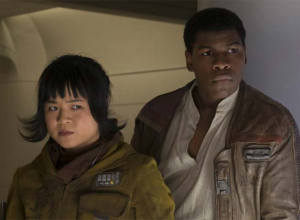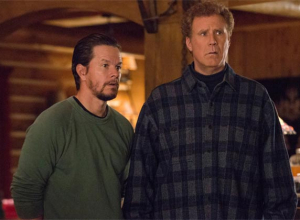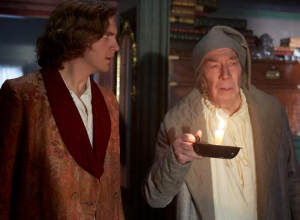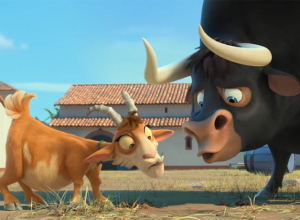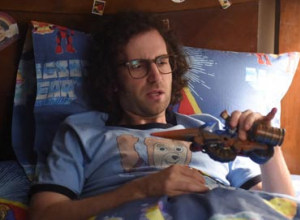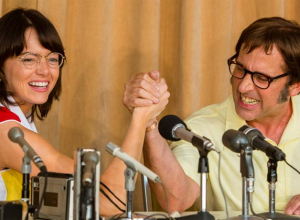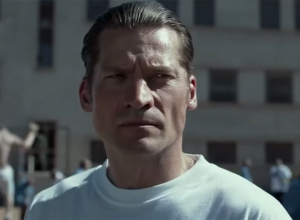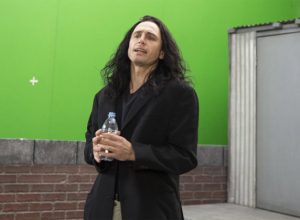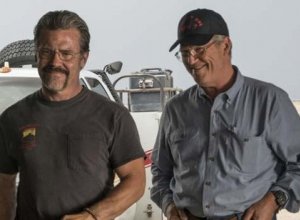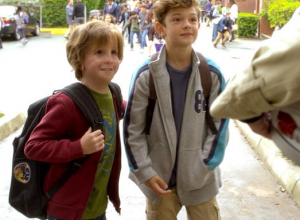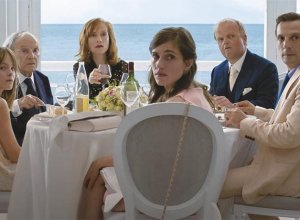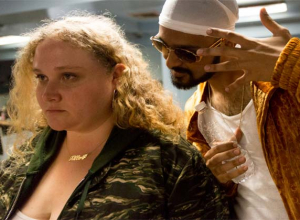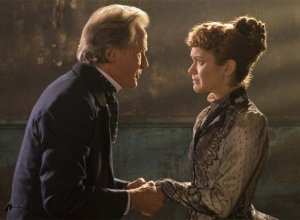The Last Castle Review
By Rob Blackwelder
With the United States in the throes of an unexpected war, the timing may not seem right for a movie about military infighting. But "The Last Castle" has a certain popcorn-picture kind of flag-waving pride about it that is enormously satisfying and oddly apropos for this particular moment in history.
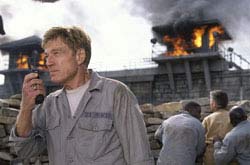
Robert Redford could be a gentleman's John Wayne in his starring role as Gen. Eugene Irwin, a highly decorated and revered Army officer beginning a 10-year sentence in military prison for leading his troops, against orders from the President, on a rescue mission that ended in catastrophe.
He's a humble but cocksure leader, greatly admired even by ironhanded warden Colonel Winters (James Gandolfini), who asks the general up to his office to shake his hand before having him shown to his cell. But Winters' respect soon turns to resentment as Irwin begins questioning his methods of managing the men in his jail -- nicknamed The Castle for its stately courtyard-and-towers design.
Winters allows no semblance of military lives for the inmates, no acknowledgement of former rank and no saluting. He breaks them of their pride and, Irwin soon discovers, he's not above having men shot -- albeit with rubber bullets -- if they get out of line. And there have been "accidents," Irwin is told by convicts who soon begin looking to him for leadership.
"I'm not leading any battles anymore," Irwin insists. But old habits die hard and before long a clandestine command has formed in the prison ranks -- and so has a plan to seize the facility and overthrow Winters' command.
Director Rod Lurie, who showed a talent for political suspense (if not for plausibility) in last year's "The Contender," has such a strong grip on the tension in this film that he can ratchet it up a notch here -- Irwin takes off his shirt, revealing gasp-worthy scars from POW torture in Vietnam -- and a notch there. After showing off his military memorabilia, Winters fumes silently upon overhearing Irwin say, "Any man with a collection like this is a man who's never set foot on a battlefield."
Lurie also culls uniquely strong performances from his top players. Gandolfini is imaginatively Napoleonic as the physically strong, intimidating Winters who, despite his dedication to duty, is a petty, soulless man with no true honor. Mark Ruffalo ("You Can Count On Me") also stands out as a big-house bookie and Irwin's potential Judas, a looking-out-for-No. 1 type doing a shortened stretch for drug smuggling because he turned informant on his own men. Meanwhile, Redford maintains a quiet, noble dignity amid the chaos and noise of his stockade.
At times "The Last Castle" has Lurie's trademark air of self-importance, but when the strategizing begins, the movie's heartbeat quickens to a rousing pace. Gen. Irwin's attack plan is as much a surprise to the audience as it is to Winters because, like the Pentagon in recent weeks, the director doesn't reveal any specifics until the offensive is already underway.
During a visit to the prison from top brass, Irwin leads Winters to believe an uprising is imminent, forcing him to reveal his "battle" tactics (water cannon first, tear gas second, helicopter sharpshooters third) and at the same time humiliates him in front of his superiors when he seems to overreact -- there is no uprising.
But it isn't long before a stunningly well-planned assault begins in earnest, including a ruse to amass the guards in a cellblock, cafeteria trays used as shields, and an impressive array of makeshift weapons (including a catapult) hidden in an old blockhouse wall that Winters has the inmates rebuilding as a symbolic gesture that plays a huge metaphorical role in the story.
The popcorn factor rears its head during this climactic revolt as "The Last Castle" takes on an explosion-heavy action movie quality, with Irwin's "troops" even managing to board the aforementioned helicopter and somehow punch out the pilot -- through his helmet -- bare-knuckled no less. Later the chopper crashes, rolls and bursts into flames, causing only superficial wounds to those onboard.
Lurie takes creative license in this showdown (with admittedly seat-gripping results). He's a little too obvious about who his martyrs will be and he turns a blind eye to the occasional logical or logistical misstep (it's far too easy for Irwin to organize strategy meetings). But the director does have a capacity for stirring symbolism (Irwin steals the prison's flag and uses chess pieces to illustrate his assault plan) and an eye for credible details that really pull you into the world behind the prison's bars.
More importantly, the characters feel 100-percent authentic -- the best example of which is Colonel Winters. Lurie and Gandolfini never allow him to become a snarling movie antagonist from central casting. He is without question a devoted career officer who believes, even as his ego gets the better of him, that he's fulfilling his duty as best he knows how.
The fact that the people involved in "The Last Castle" took such pride in its integrity gives the film a kind of dignity -- even with its flaws -- that would have been lost had it been a star vehicle for, say, John Travolta, Nicolas Cage or other egoist A-listers whose names were probably bandied about in the casting process.
Facts and Figures
Year: 2001
Run time: 131 mins
In Theaters: Friday 19th October 2001
Box Office USA: $17.9M
Box Office Worldwide: $27.6M
Budget: $72M
Distributed by: DreamWorks SKG
Production compaines: DreamWorks SKG
Reviews
Contactmusic.com: 3 / 5
Rotten Tomatoes: 52%
Fresh: 59 Rotten: 55
IMDB: 6.9 / 10
Cast & Crew
Director: Rod Lurie
Starring: Robert Redford as Lt. Gen. Eugene Irwin, James Gandolfini as Col. Winter, Mark Ruffalo as Yates, Steve Burton as Cap. Peretz, Delroy Lindo as Gen. Wheeler, Paul Calderon as Dellwo, Samuel Ball as Duffy, Jeremy Childs as Cutbush, George W. Scott as Thumper, Clifton Collins, Jr. as Cp. Ramov Aguilar
Also starring: Clifton Collins Jr., Brian Goodman, Frank Military, Michael Irby
